
Hawaii
Hawai’i Public Radio: Concerns Rise for Low-Income Families Over Legislature’s Recent Tax Cut Measure
May 16, 2024
Most Hawaiʻi residents will likely see lower income taxes next year due to a measure recently passed by the state Legislature. However, some advocates are concerned that those changes could also limit tax assistance for those who need it the most. Lawmakers are calling it the biggest tax cut in the state’s history: about $5 billion over the next five years.
ITEP’s Miles Trinidad Testifies Against Weakening Hawai’i’s Estate Tax
April 9, 2024
HB 2653 would only exacerbate the regressive nature of Hawai’i’s state and local tax system and compound the preferential treatment of income derived from wealth.
Capital & Main: Extreme Wealth Is on the Ballot This Year — Will Americans Vote to Tax the Rich?
April 3, 2024
On March 7, President Joe Biden reintroduced proposals to increase taxes on the wealthiest Americans and the nation’s most profitable corporations. The move virtually ensures that the nation’s extreme wealth inequality — more than one in four dollars in the country is held by a tiny sliver of households with a net worth over $30 million — will be part of the national election debate. But excessive wealth may take center stage in at least 10 states, ranging from Democratic bastions such as California, Hawaii and New York to swing states such as Nevada and Pennsylvania.
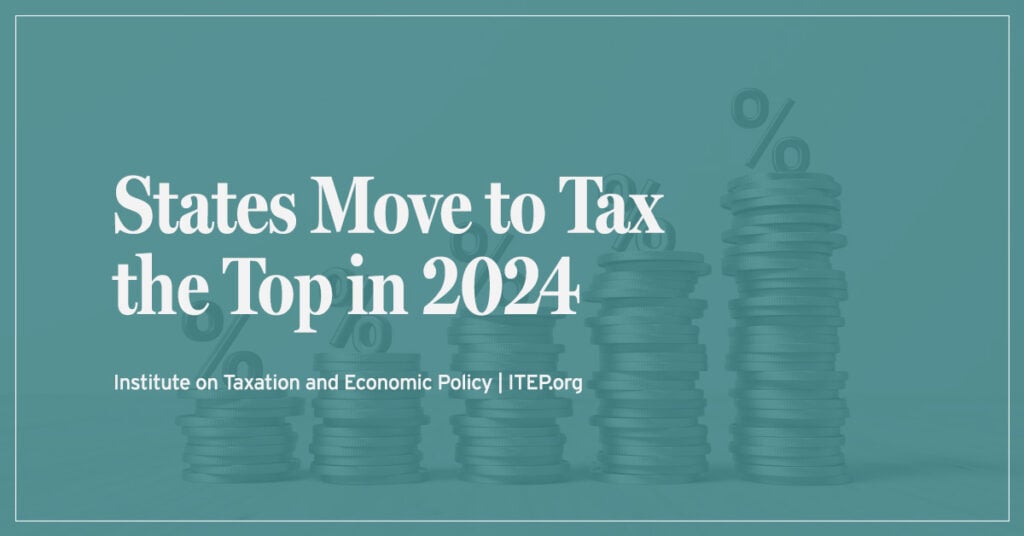
These forward-thinking states are demonstrating the wide variety of options for policymakers who want to raise more from the wealthiest people, rein in corporate tax avoidance, create fair tax codes and build strong communities.
Local Mansion Taxes: Building Stronger Communities with Progressive Taxes on High-Value Real Estate
March 14, 2024 • By Andrew Boardman

More than one dozen cities and counties levy progressive taxes on high-price real estate transactions — sometimes called mansion taxes — and over a dozen more are considering such policies. By asking buyers and sellers with greater financial means to contribute more to the common good, these policies are equipping communities with resources to make progress on critical challenges of local and national concern.

Anti-tax interests finally found the end of the tax cutting appetite in a few states this week...
NPR: A Tech Billionaire Is Quietly Buying Up Land in Hawaii. No One Knows Why
February 28, 2024
Over the last couple of years, a mystery has been brewing in this small mountain town. Someone has been quietly buying hundreds of acres of land — stirring worries about rising housing prices and speculation among locals about what exactly is going on.
State Rundown 2/1: Black History Month Begins as Tax Debates Heat Up Nationwide
February 1, 2024 • By ITEP Staff

This week the showdown between the Kansas legislature and governor continued as Gov. Kelly vetoed the legislature’s latest attempt to pass a flat personal income tax. Elsewhere, the focus is on doing more for working families through proposals to expand refundable credits in Maryland and adding a millionaire tax bracket in Rhode Island. Meanwhile, there’s […]
Hawai’i Appleseed Center for Law and Economic Justice: Rebalance Hawaii’s Upside-Down Tax Code to Achieve Prosperity for All
January 24, 2024
Our state tax code makes the situation worse. A comprehensive analysis of state and local taxes across the country shows that Hawaii is the third-worst state when it comes to taxing struggling working families. Households in the lowest income category pay an effective tax rate of 14.1%, while the richest 1% pay an effective tax rate of 10.1%
State Tax Watch 2024
January 23, 2024 • By ITEP Staff
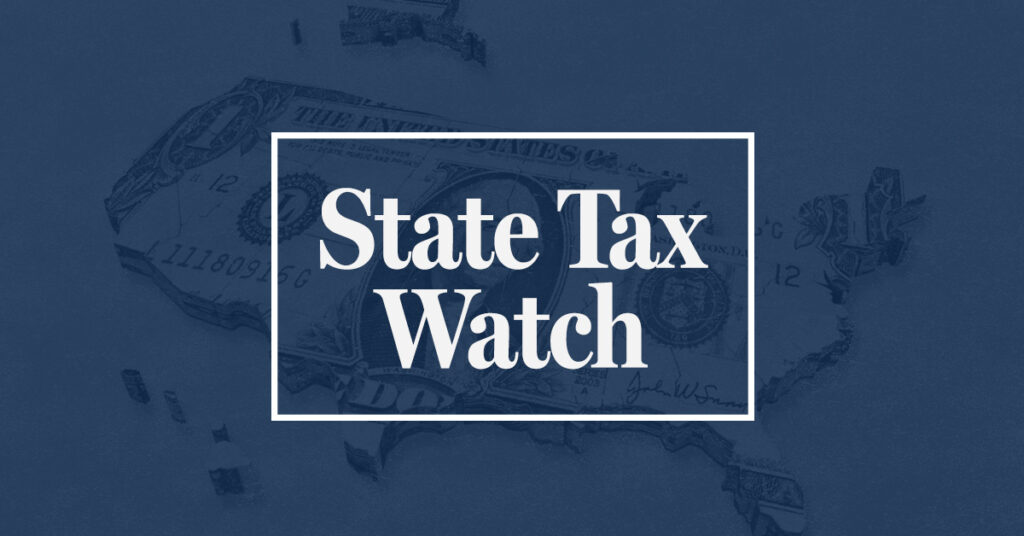
Updated July 15, 2024 In 2024, state lawmakers have a choice: advance tax policy that improves equity and helps communities thrive, or push tax policies that disproportionately benefit the wealthy, drain funding for critical public services, and make it harder for low-income and working families to get ahead. Despite worsening state fiscal conditions, we expect […]
Worthwhile Ideas for a Stronger and Fairer D.C. Tax Code
January 17, 2024 • By Andrew Boardman, Kamolika Das, Marco Guzman
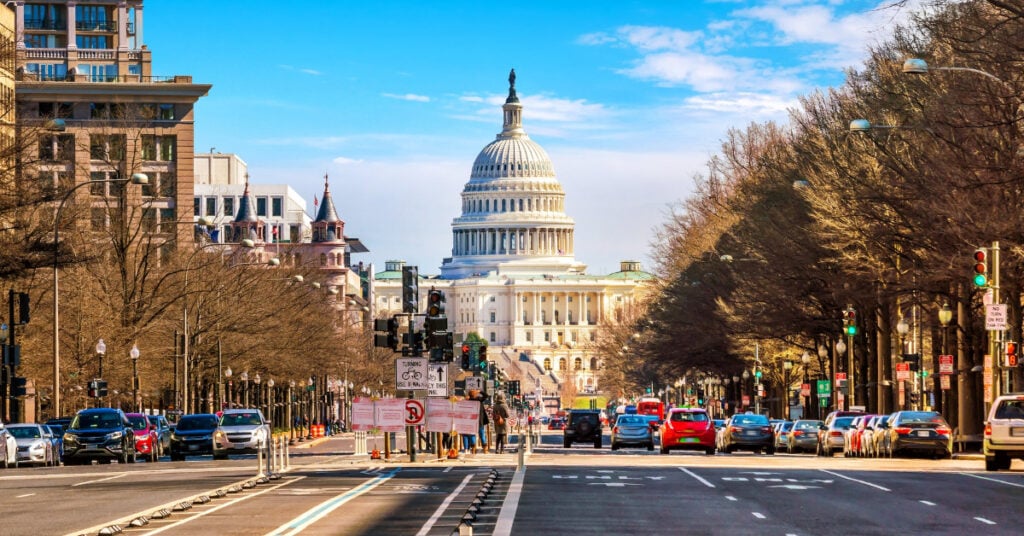
The nation’s capital has a once-in-a-decade opportunity to advance a stronger and fairer local tax code. New draft recommendations from a key advisory panel will help leaders make the most of the moment.
Hidden in Plain Sight: Race and Tax Policy in 2023 State Legislative Sessions
November 21, 2023 • By Brakeyshia Samms
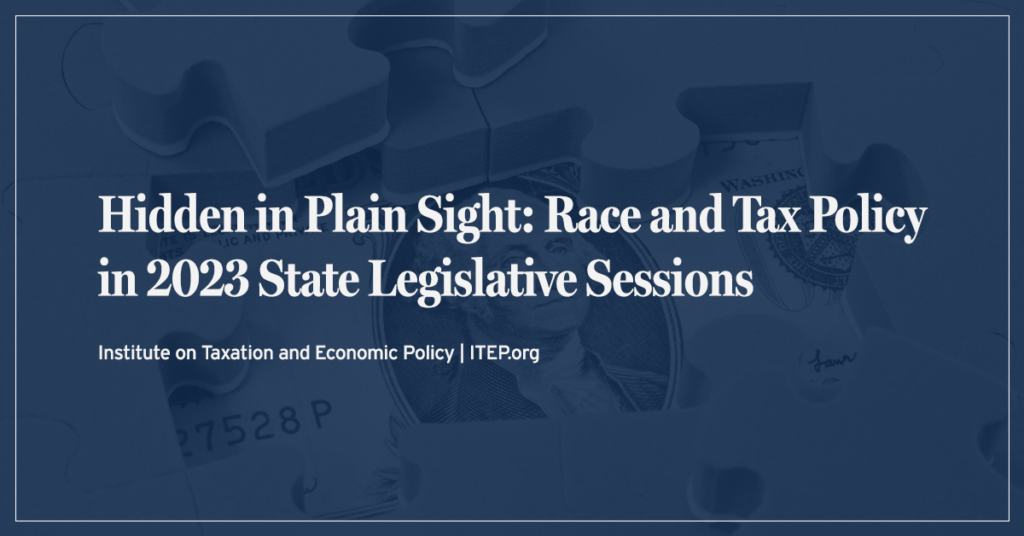
Race was front and center in a lot of state policy debates this year, from battles over what’s being taught in schools to disagreements over new voting laws. Less visible, but also extremely important, were the racial implications of tax policy changes. What states accomplished this year – both good and bad – will acutely affect people and families of color.
State Rundown 7/6: Tax Policy Keeping Governors Busy from Coast to Coast
July 6, 2023 • By ITEP Staff

From coast to coast, state governors have been busy inking their signature on a growing list of consequential budget and tax bills...
Preventing an Overload: How Property Tax Circuit Breakers Promote Housing Affordability
May 11, 2023 • By Brakeyshia Samms, Carl Davis

Circuit breaker credits are the most effective tool available to promote property tax affordability. These policies prevent a property tax “overload” by crediting back property taxes that go beyond a certain share of income. Circuit breakers intervene to ensure that property taxes do not swallow up an unreasonable portion of qualifying households’ budgets.
State Rundown 5/10: Momentum on State Tax Credits Continues to Build
May 10, 2023 • By ITEP Staff

This week, in states across the country the momentum to center improvements to family economic security remains strong...
Extending Temporary Provisions of the 2017 Trump Tax Law: National and State-by-State Estimates
May 4, 2023 • By Joe Hughes, Matthew Gardner, Steve Wamhoff
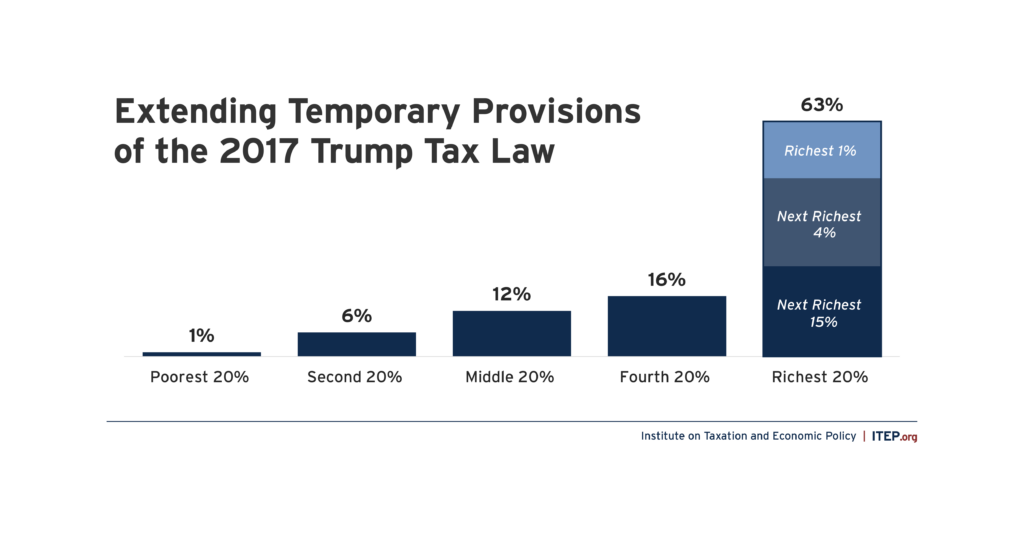
The push by Congressional Republicans to make the provisions of the 2017 Tax Cuts and Jobs Act permanent would cost nearly $300 billion in the first year and deliver the bulk of the tax benefits to the wealthiest Americans.

While the conversations on the debt ceiling heat up in the nation's capital, debates on state tax policy also continue to unfold in capitol buildings across the nation...

This week the importance of state tax policy is center stage once again...
State Rundown 4/12: Tax Day 2023 – A Good Reminder of the Impact of Our Collective Investments
April 12, 2023 • By ITEP Staff

With Tax Day quickly approaching it’s worth taking some time to reflect not just on tax forms (though those are important!), but also on the current state of state tax policy...

It’s March and state lawmakers are showing why the Madness isn’t only reserved for the basketball court...
State Rundown 3/9: The Whirlwind 2023 Legislative Session Continues
March 9, 2023 • By ITEP Staff

State 2023 legislative sessions are proving to be eventful ones. With many states eager to make use of their budget surpluses, major tax changes are still being proposed and others signed into law. Michigan residents will soon see an increase to their state Earned Income Tax Credit (from 6 percent to 30 percent) after the […]
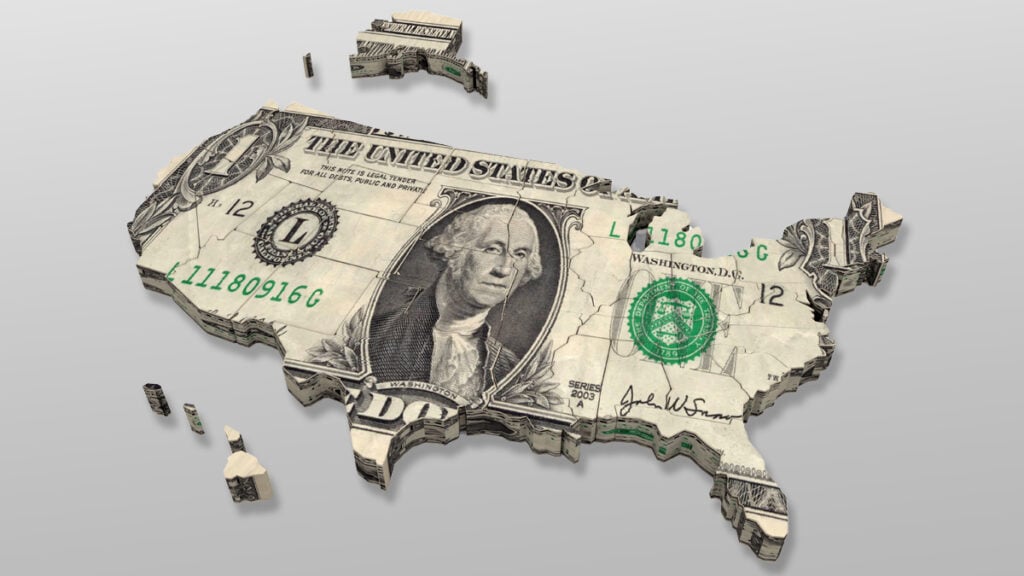
The word “tax” appears 97 times and counting in one recent summary of governors’ addresses to state legislators so far this year. The policy visions that governors are bringing, however, vary enormously. While there's good reason to worry about tax cuts for wealthy families and the flattening or elimination of income taxes, there are at least five great tax ideas coming directly out of governors’ offices this year.

The great women’s philosopher, Pat Benatar, once said “love is a battlefield,” and there’s no greater test of our love for state tax policy than following the ups and downs of state legislative sessions...
Hawaiʻi Budget & Policy Center: Closing the Capital Gains Loophole
February 1, 2023
Eliminating the preferential tax treatment of capital gains income will increase tax fairness and help fund our future. Read more.
State Rundown 1/26: Tax Season Brings With it Reminder of EITC’s Impact
January 26, 2023 • By ITEP Staff
Tax season has officially kicked off and with Earned Income Tax Credit (EITC) Awareness Day right around the corner, it serves as another reminder for how important the EITC is...
